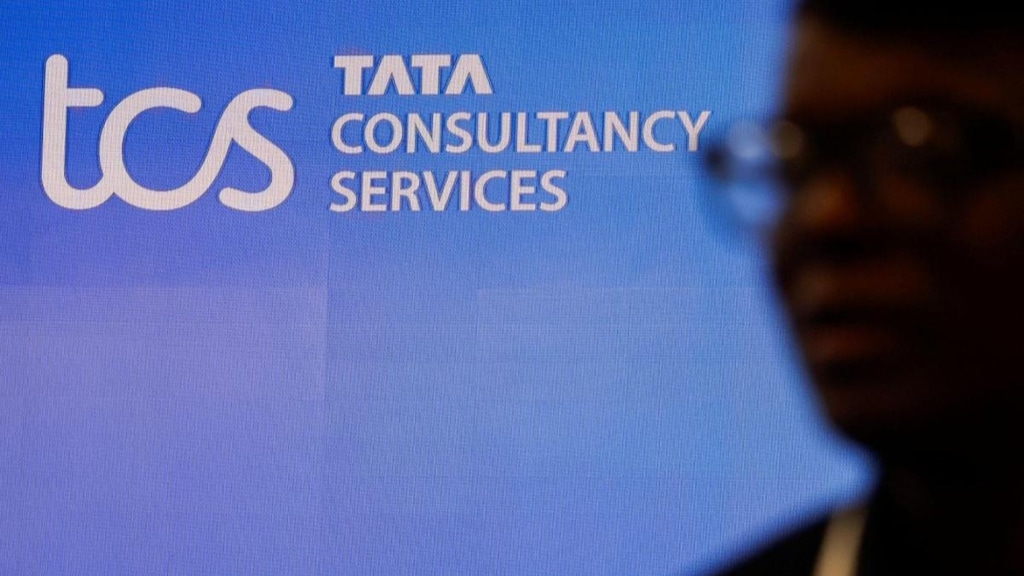Led by BSNL’s 4G network deal, and revenue flow from AI cloud business, saw Tata Consultancy Services (TCS), report a higher than expected earnings during the April-June quarter. This also signals that cuts discretionary spending by clients may have bottomed out and may begin to rise hereon.
Net profit during the period declined 3.2% quarter-on-quarter to Rs 12,040 crore, but beat Bloomberg consensus estimate of Rs 11,959 crore. The sequential decline in net profit was due to the wage hike implemented by the company during the quarter. The same was the case with operating margin, also known as the earnings before income and tax, which fell 130 basis points quarter-on-quarter to 24.7%.
Revenues at Rs 62,613 crore, was up 2.3% sequentially and once again beat estimates of Rs 62,128 crore.
“I am pleased to report a strong start to the new fiscal year with all-round growth across industries and markets. We are continuing to expand our client relationships, create new capabilities in emerging technologies and invest in innovation, including a new AI-focused TCS PacePort in France, IoT lab in the US and expanding our delivery centers in Latin America, Canada and Europe,” K Krithivasan, chief executive officer and managing director, said.
“On the wage increments, the overall impact of increments is 170 basis points. And that has been in line with what we have given in the past. Typical range has been between 150 to 200 basis points,” Samir Seksaria, chief financial officer said.
TCS saw a sharp quarter-on-quarter decline of 37% in deal wins taking the total contract value to $8.3 billion that include a generative AI (GenAI) and cloud transformation deal with Xerox and a BFSI deal with Burgan Bank.
“In terms of order book, it is lumpy… This particular quarter, we had some major projects that were expecting to close within Q1 that did not close, that got moved into Q2. It need not be because of decision making days, it could be of various other reasons,” Krithivasan said.
Nonetheless, the company said it is confident as the total pipeline, continues to be at a near all-time high. “It is more a question of timing on how much gets booked in a particular quarter. We are looking at about $7 to 9 billion TCV as a comfort range and we are within that range,” he added.
VERTICAL & GEOGRAPHICAL PLAY
Revenues from its largest vertical, the financial services, saw a 40 basis points sequential decline. Meanwhile, the second largest contributor, consumer business, also fell 30 bps sequentially.
Sales from life sciences and healthcare rose marginally by 10 bps quarter-on-quarter, while communications vertical saw a 40 bps decline. And, revenue from both the fourth largest vertical, manufacturing, and energy, resources and utilities were flat in April-June. Meanwhile, revenue from technology and services fell 10 bps and those of regional markets and others rose 110 bps.
The company also said it was seeing strong traction in the GenAI space and has a deal pipeline of $1.5 billion, up from $900 million reported in the March quarter. Further, the company said as many as 270 AI or GenAI engagements have been deployed or are in various stages of progress.
“Most of them (GenAI based deals) are short-term, but we have started seeing some long-term opportunities as well. Any new technology that comes in, we overestimate the impact in the short term and underestimate its long term impact. And the same thing is happening in AI. We expect significant revenue, significant impact within a few quarters,” Krithivasan said.
Further, the company’s revenue contribution from North America and Continental Europe fell and sales from UK and India rose. The revenue contribution from North America fell 50 bps sequentially on a constant currency basis to 49.5% and that of Continental Europe decreased 20 bps to 14.4% in the quarter ended June.
The company’s revenue from India rose 80 bps to 7.5%. The sales in the region has also increased by a whopping 61.8% on a year-on-year basis on the back of ramp by in the BSNL deal.
“Diversification of revenue has been an important strategy and we look at these markets as very important growth levers as we go forward,” Krithivasan said.
TCS also declared a final dividend of Rs 10 per equity share.
UNCERTAIN ON GROWTH
While the company saw some green shoots in the quarter ended June, it does not see this growth sustaining yet as the current market conditions continue “to be quite volatile” and customers do take decisions at a very short notice.
“We still believe it is too early to call whether the growth momentum is sustainable, because the market conditions continue to remain same as it was last quarter,” Krithivasan said. “So, there is nothing new to add in terms of market sentiments. But at the same time, last quarter, we mentioned that we believe FY25 will be better than FY24,” he added.
Irrespective of the uncertainty, the company said it stays committed to the 26-28% aspirational operating margin band for the fiscal year 2025.





